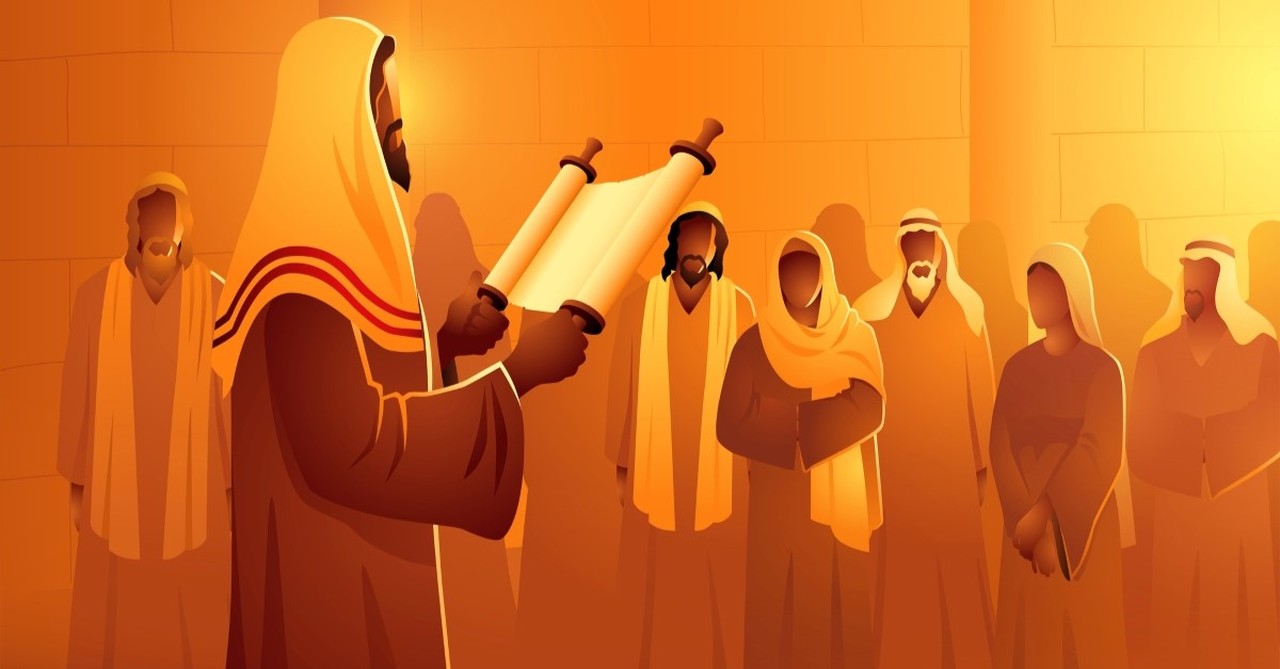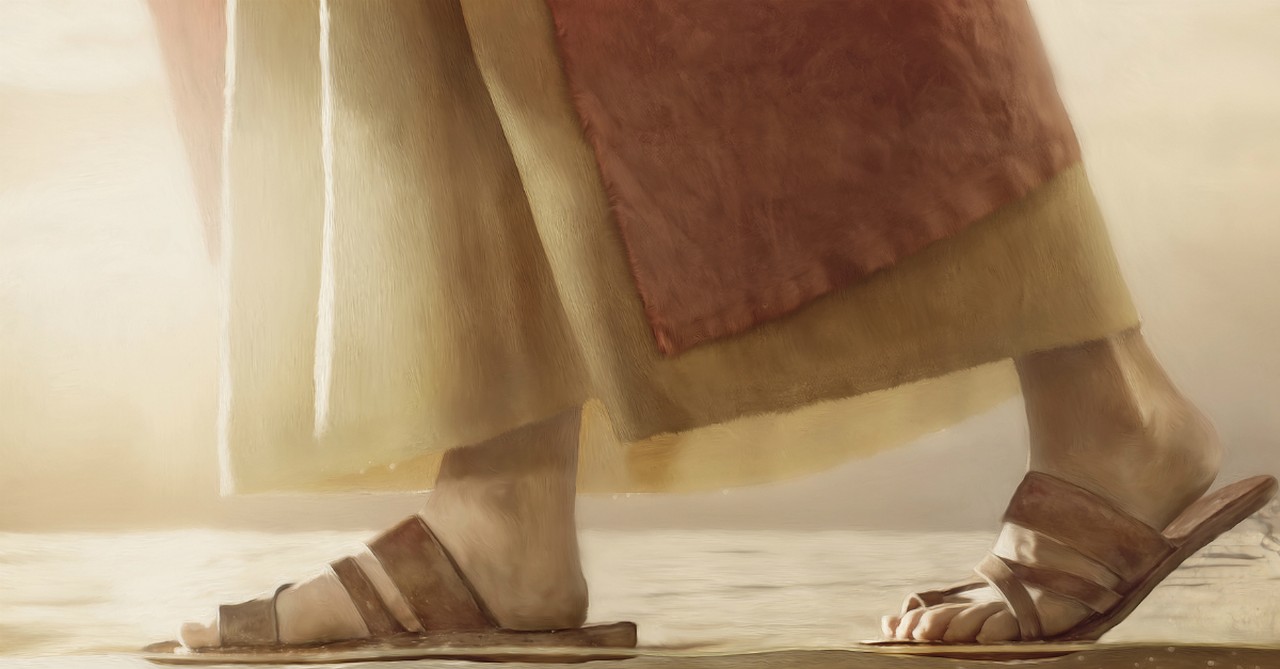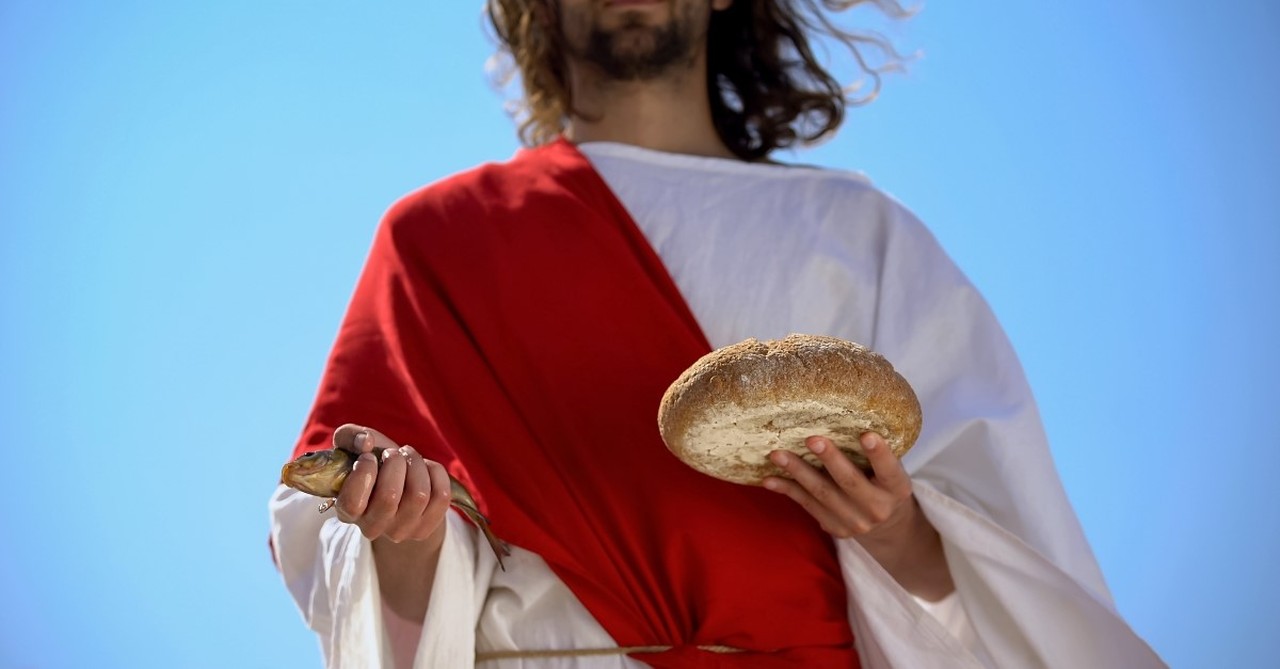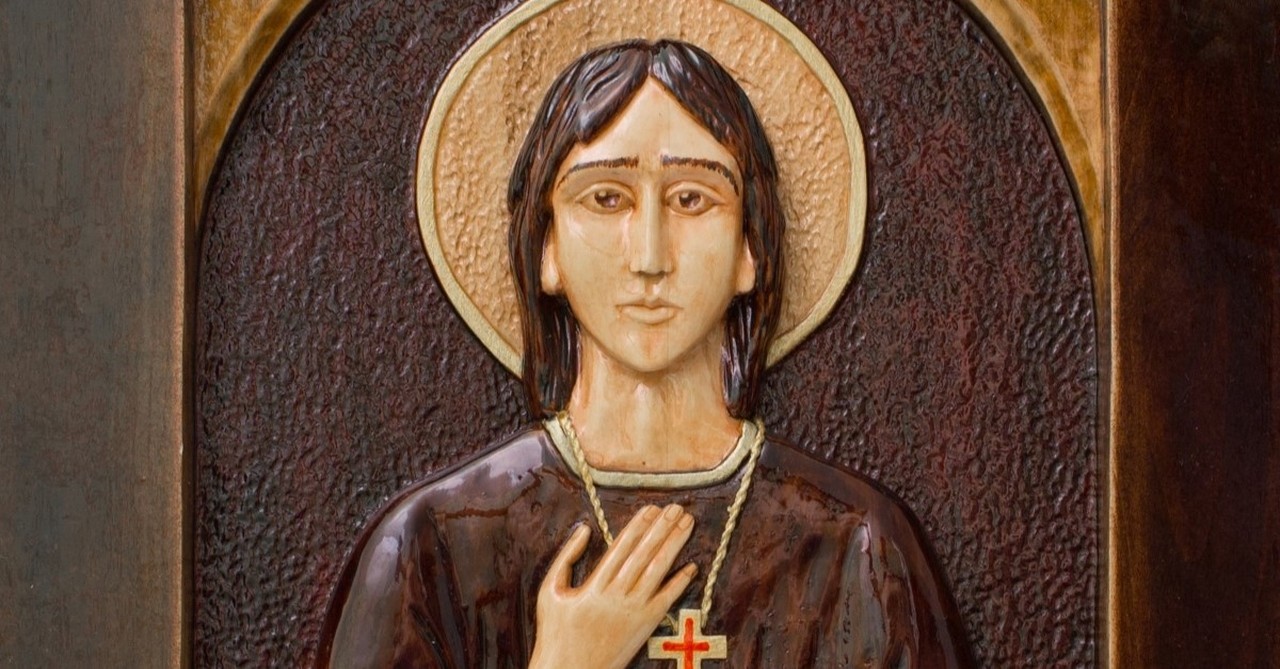10 Incredible Children in the Bible and Their Inspiring Faith

Throughout the life and ministry of Jesus, many children encountered the love and grace of the Son of God firsthand. Although some saw children as an annoyance, inconvenience, or distraction to Jesus’s divine mission, Jesus had a different view of the children who came to see Him. “Let the little children come to me,” He said, “and do not hinder them, for the kingdom of God belongs to such as these.” (Mark 10:14-15)
Throughout the Bible, we find that God the Father has a similar heart for children, who have always had a seat at His table and a role to play in His plan for creation. In fact, some of the most incredible stories in the Bible involve children who were unashamed and unafraid to serve the Lord regardless of their age.
Here, then, are ten stories of incredible children in the Bible and how God used them for His kingdom and His glory.
Photo credit: ©Getty Images/KatBuslaeva
Miriam Watches Over Her Little Brother Moses (Exodus 2:1-14)

Miriam Watches Over Her Little Brother Moses (Exodus 2:1-14)
SLIDE 1 OF 10
The events surrounding Moses’ early life are as harrowing as any story in the Bible. Faced with certain death at the hands of the Egyptian Pharaoh, Moses was hidden by his mother, Jochebed, until she courageously put her son in a basket and placed him among the reeds of the Nile River. There, Moses was found by the daughter of the Pharaoh, who pulled him from the river and raised him as her own in the palaces of Egypt.
That is the first chapter of Moses’ remarkable story that most of us are probably familiar with.
However, in the book of Exodus we read that it was Moses’ older sister Miriam who kept watch over her baby brother while he floated in a basket among the reeds of the Nile (Exodus 2:4). And after the daughter of the Pharaoh found Moses, it was also Miriam who stepped forward and offered to find a nurse to help feed and care for the baby (Exodus 2:7).
Had Miriam been instructed to do this by her mother? Or was it the young Miriam who saw an opportunity and acted quickly to bring her own mother back into the picture? The Bible doesn’t tell us.
All we really know is that Miriam’s commitment to her baby brother’s well-being helped ensure his survival. In many ways, Miriam is the most clever, courageous, and committed babysitter in all of Scripture. At the very least, she was an incredible big sister who played an instrumental part in God’s plan to deliver Moses and prepare him for an epic future.
Photo credit: ©Getty Images/BibleArtLibrary
Samuel Listens for God’s Voice (1 Samuel 2:1– 3:21)

Samuel Listens for God’s Voice (1 Samuel 2:1– 3:21)
SLIDE 2 OF 10
When he was a young boy, Samuel was dedicated to the service of the Lord by his mother Hannah. Under the tutelage of Eli, the high priest, he was taught the ins and outs religious leadership. However, it wasn’t until he was older that Samuel encountered the Lord personally for the first time.
As the story goes, one night when Samuel was lying down in the temple of the Lord where the ark of God was, the Lord called out to Samuel. Assuming it was Eli, Samuel responded, “here I am.” This happened several times before Eli finally realized that it was God speaking to Samuel. He then instructed the boy to make himself available to the Lord, sit, wait, and listen to all that God said.
“Speak, for Your servant is listening,” Samuel responded the next time God called (1 Samuel 3:10).
It was this event that set the young Samuel on a path to becoming one of the most discerning and influential prophetic leaders in Israel’s history. However, at a young age Samuel had learned a critical spiritual discipline that would guide his relationship with the Lord for the rest of his life. He had learned to listen.
Photo credit: ©Aaron Burden/Unsplash
David Seeks the Lord in Solitude (1 Samuel 16:1- 17:58)

David Seeks the Lord in Solitude (1 Samuel 16:1- 17:58)
SLIDE 3 OF 10
David’s public triumph over the Philistine giant Goliath may have made him an instant celebrity and national folk hero. However, just a few chapters earlier God had told the prophet Samuel, “God sees not as man sees, for man looks at outward appearance, but the Lord looks at the heart.” (1 Samuel 16:7) So what did God see in David at such a young age before his public triumph?
There are a couple things about David’s young character that all young men should study.
For one thing, David spent most of his time working as a shepherd of his father’s flock. This was not glorious work. However, David learned to be faithful in his work. He did his job, honored his father, and did everything without complaining.
When David stepped forward to challenge the Philistine champion, he also resolved to fight with a mere stone and a sling. Against a more experience opponent and superior weaponry, this was a clear mismatch. However, when presented with his odds, David looked to God’s history of faithfulness. In the fields of Bethlehem, David had rescued his sheep from the jaws of the bear and paws of the lion on more than one occasion, and God had been with him in every encounter. Furthermore, to defend his sheep, David had become lethally proficient with a stone and a sling, a weapon that would ultimately help him defeat Goliath. No opportunity in David’s early life, therefore, was wasted.
And in his solitude, David had learned to commune with God. When no one else was around, David worshipped, writing psalms and hymns to a congregation of sheep and an audience of one. Even before David battled Goliath, he would sometimes play music for the king of Israel, refreshing the weary, tormented heart of King Saul in the process.
In several passages of the Bible, David is referred to as “a man after God’s own heart.” (see 1 Samuel 13:14; Acts 13:22). However, David’s commitment to the Lord began well before he became a man or even the king of Israel.
In his youth, David’s aspiration was to know the Lord. He sought God in solitude. Little did he or anyone else know that God was developing the faith, the character, and the leadership of a man, a warrior, and a king in the quiet, seemingly obscure moments of David’s formative years.
Photo credit: Unsplash/Biegun Wschodni
Naaman’s Servant Girl Points to a Miracle (2 Kings 5:1-14)

Naaman’s Servant Girl Points to a Miracle (2 Kings 5:1-14)
SLIDE 4 OF 10
When Naaman, the supreme commander of the Syrian army, raided Israel and took captive a Hebrew girl to make his servant, I doubt he knew that she would be the key to a life-saving miracle. Highly respected by the king of Aram, commander Naaman also suffered from leprosy, a serious skin disease (2 Kings 5:1).
However, it was the compassion of his Hebrew servant who said to her mistress, “I wish that my master were with the prophet who is in Samaria! Then he would cure him of his leprosy.” (2 Kings 5:3)
Obviously, there are many ways to view this story. What’s incredible, however, is that Naaman’s servant knew that healing and salvation came from the Lord, and she did not conceal this from her master. Rather, she told Naaman to seek out the prophet Elisha.
Accordingly, sometimes the greatest miracles and salvation stories in life begin with the simple faith and compassion of those willing to point others to the Lord.
In a previous verse, the author of 2 Kings writes that, “by him (Naaman) the Lord had given victory to Aram.” (2 Kings 5:1) Little did Naaman probably know, the sovereign God of Israel had been the author of his life up until that point. And thanks to the faith and compassion of the Hebrew maidservant, God would write another chapter in Naaman’s life story.
Photo credit: ©Getty Images
Josiah Admires the Right Man (2 Kings 22:1- 23:27; 2 Chronicles 34:31-33)

Josiah Admires the Right Man (2 Kings 22:1- 23:27; 2 Chronicles 34:31-33)
SLIDE 5 OF 10
It is no secret that the history of Israel’s kings is often a case study in failed leadership. In fact, Scripture does not mince words when it comes to the moral depravity and deficiencies of Israel and Judah’s rulers, many of whom “did evil in the eyes of the Lord.”
Therefore, when Josiah came to the throne of Judah at the impressionable age of only eight years old, he had few righteous examples to look to. However, the Bible tells us that, from a young age, Josiah committed to walking a different path than his father and predecessors.
“He (Josiah) did right in the sight of the Lord and walked in all the ways of his father David, nor did he turn aside to the right or to the left.” (2 Kings 22:2)
Ironically, David was not Josiah’s direct father. He was a distant ancestor. That’s how far back Josiah had to look to find a spiritual role model and righteous leader to base his character and leadership on.
We don’t know what kind of advisors Josiah had in his life during his reign as king. We can assume he had a few. However, the Bible tells us that Josiah chose the right man to admire early on. That was David, the man after God’s own heart.
Image created using DALL.E 2024 AI technology and subsequently edited and reviewed by our editorial team.
Jeremiah is Faithful Even with a Difficult Calling (Jeremiah 1:1-19)

Jeremiah is Faithful Even with a Difficult Calling (Jeremiah 1:1-19)
SLIDE 6 OF 10
You probably won’t find many teenagers who would eagerly pursue a job, career, or calling that would bring them nothing but pain and heartbreak. And yet, when God called Jeremiah to prophesy judgment against the nation, He warned that his ministry would not be comfortable or easy.
Not unlike Moses at the burning bush, Jeremiah initially responded to God’s appointment with concerns about his own inadequacy. “Alas, Lord God! Behold, I do not know how to speak, because I am a youth!” (Jeremiah 1:6) However, God did not call Jeremiah because of his age or speaking abilities but because He had chosen him and sanctioned him to be His prophet since before he was born (see Jeremiah 1:5
Nevertheless, all of Jeremiah’s life would be tied to the knowledge that God was going to bring destruction upon his home and hand his people over to captivity. To make matters worse, Jeremiah would be asked to prophesy a warning that few people would listen to. But through it all, Jeremiah bore his pain and heartbreak to God. He would even pen a book of lament (Lamentations) following the destruction of Jerusalem. It is no wonder many have referred to Jeremiah as the weeping prophet.
However, Jeremiah was faithful; and God was with him through it all. In God alone, Jeremiah put his faith, his trust, and his hope; and it was this hope that got him through his seasons of heartbreak and sadness.
Photo credit: ©Getty Images/ rudall30
Daniel and His Friends Resist Societal Pressure (Daniel 1:1-21)

Daniel and His Friends Resist Societal Pressure (Daniel 1:1-21)
SLIDE 7 OF 10
Today’s parents are right to be concerned about the pervasive influences seeking to mold and shape the minds of their children. Throughout history, the kingdom of darkness has always sought to turn the hearts of God’s children away from the Father. Nowhere in the Bible is this more evident than in the days of Daniel.
Taken captive by the Babylonian king Nebuchadnezzar, a young Daniel and his friends Hananiah, Mishael, and Azariah were brought back to Babylon and thrown into a “reeducation” program designed to purge the young captives of their Hebrew identity and indoctrinate them into all things Babylonian. They were given new food, new clothes, and even new Babylonian names to honor the gods of Babylon.
Showing incredible resilience and a commitment to the values of their people, Daniel and his friends resisted the temptation to succumb to new societal pressure. Specifically, they made up their minds not to “defile” themselves with the choice food and wine of Babylon, asking instead to be given a diet of vegetables and water for ten days.
As a result, God granted Daniel and his friends favor with their captors and “gave them knowledge and intelligence in every branch of literature and wisdom; Daniel even understood all kinds of visions and dreams.” (Daniel 1:17) The Bible also tells us that, after the ten days, “no one was found like Daniel, Hananiah, Mishael, and Azariah,” who then entered the king’s personal service (Daniel 1:19).
Resisting the push and pull of the world is not easy, especially for children today. However, the Bible teaches all believers to “not conform to the pattern of this world” (Romans 12:2) but to “be holy in all your conduct” (1 Peter 1:15).
Daniel and his friends remembered God’s call for His chosen people to be “holy” and “set apart” from the nations (see Deuteronomy 7:6). Furthermore, they are a reminder of God’s promise that, “for those who honor Me I will honor.” (1 Samuel 2:30)
Photo credit: ©Getty Images/B-C-Designs
Jesus Chooses to be About His Father’s Business (Luke 2:41-52)

Jesus Chooses to be About His Father’s Business (Luke 2:41-52)
SLIDE 8 OF 10
Apart from the details surrounding Jesus’ birth, not much is written about His childhood or life prior to the beginning of His adult ministry. However, Luke’s gospel does provide one story that offers some insight into Jesus’ younger years.
On an annual visit to Jerusalem for the Feast of the Passover, a twelve-year-old Jesus had gotten separated from his parents. Assuming Jesus was somewhere among the caravan returning to Galilee, Mary and Joseph pressed on to Nazareth. After a couple of days, however, they realized that Jesus was not with the group. He had remained in Jerusalem.
Of course, Jesus had not gotten lost or wandered away. Rather, when Mary and Joseph found Him, Jesus was in the temple in Jerusalem, “sitting in the midst of the teachers, both listening to them and asking them questions.” (Luke 2:46) Luke also tells us that, “all who heard Him were amazed at His understanding and His answers.” (Luke 2:47)
Nevertheless, a troubled Mary confronted her son for what seemed to be a lack of regard for His parents’ concern. To this, the young Jesus famously replied, “why is it that you were looking for Me? Did you not know that I had to be in My Father’s house?” (Luke 2:49)
Even today, it is rare to find a twelve-year-old who knows exactly where they belong, what they want to do, and who they want to be in life. Jesus, however, seemed quite confident of all these things at a young age. Nevertheless, in His humility, He was still willing to sit and converse with the teachers in the temple.
Perhaps there is a lesson here for young believers.
While God does not expect children to have their entire life mapped out or everything figured out by the age of twelve, the young Jesus does provide an example for how to orient our lives. At a young age, Jesus chose to be about His Father’s business, because it is in only God’s presence and in God’s Word that we find our true identity and purpose.
Photo credit: ©GettyImages/KristiLinton
The Boy with Five Loaves and Two Fish Offers What He Has (Matthew 14:13-21; Mark 6:33-44; Luke 9:12-17; John 6:1-14)

The Boy with Five Loaves and Two Fish Offers What He Has (Matthew 14:13-21; Mark 6:33-44; Luke 9:12-17; John 6:1-14)
SLIDE 9 OF 10
The miracles of Jesus are recorded in the four gospels of the New Testament. One of the largest and most public of these involved the Feeding of the 5000.
According to the Bible, a large crowd had gathered to hear Jesus speak and hopefully encounter a sign or miracle along the way. Here, John’s gospel tells us that, “lifting His eyes and seeing that a large crowd was coming to Him,” Jesus turned to His disciples and asked where they should buy bread so the people could eat (John 6:1-7).
One of His disciples, Philip, made a quick calculation and determined that they simply did not have the funds to feed so many people. It was then that Andrew, the brother of Simon Peter, brought forward a young boy, saying, “there is a lad here who has five loaves and two fish, but what are these for so many people?” (John 6:9)
Those familiar with the story will know that, from this boy’s lunch, Jesus multiplied the five loaves and two fish to feed the thousands in attendance, “as much as they wanted.” (John 6:11)
The Bible does not tell us very much about this boy. We don’t know about his family or his upbringing. We don’t even really know about his faith or his reason for being there. All we know is that he offered what little he had, and Jesus did the rest. And for the rest of his life, that boy could tell everyone that he had supplied the five loaves and fish that Jesus had used for one of the greatest miracles in history.
Photo Credit: ©Getty Images/Motortion
Timothy Learns from the Best (Acts 16:1; 1 Corinthians 4:17; 1 Timothy 1:18; 4:11-16; 2 Timothy 1:1-18; Philippians 2:19-24)

Timothy Learns from the Best (Acts 16:1; 1 Corinthians 4:17; 1 Timothy 1:18; 4:11-16; 2 Timothy 1:1-18; Philippians 2:19-24)
SLIDE 10 OF 10
Unlike the young King Josiah, Timothy did have a direct mentor in the apostle Paul to learn from in his young faith; and it was clear from several of his letters that Paul held his young protégé in very high regard, going so far as to call him as a “son” and “true child” in the faith (see 1 Timothy 1:1-18 and Philippians 2:19-24).
We know that Timothy was a young man throughout Paul’s ministry. In fact, in one of his letters, Paul famously encouraged Timothy to never let others in the church look down on him because of his youth, “but rather, in speech, conduct, love, faith and purity, show yourself an example of those who believe.” (1 Timothy 4:12)
He may not have been a child at that time, probably more in his twenties or early thirties when Paul wrote this letter. However, Timothy had clearly matured in the faith under the guidance, instruction, and leadership of Paul, who he had “served with in the furtherance of the gospel like a child serving his father.” (Philippians 2:22)
Since he was a boy, Timothy learned from some of the wisest and most faithful disciples of Jesus Christ. This included Paul, his spiritual father in the faith, but also his mother Eunice and grandmother Lois, who Paul commends in his second letter to Timothy (Acts 16:1; 2 Timothy 1:5).
Great spiritual mentors are integral to the growth, discipleship, and spiritual maturity of all young believers. However, in his humility, Paul always pointed attention back to Christ, teaching young men like Timothy to “follow my example, just as I follow Christ’s example.” (1 Corinthians 11:1; emphasis added)
In his young life, Timothy learned by imitating Paul. However, his loyalty to Paul never supplanted or superseded his loyalty to Christ. Jesus was and is the ultimate example for young disciples to follow. Therefore, the encouragement to young believers should be to seek out spiritual mentors who imitate Christ as much now as they did in their younger years.
Photo credit: ©Getty Images/dobryak839

Originally published May 05, 2025.






